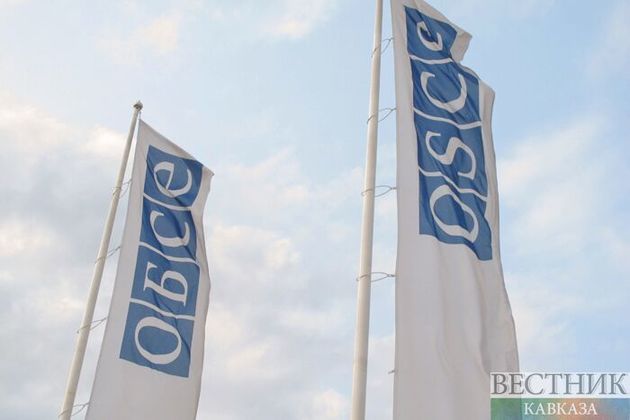The Co-Chairs of the OSCE Minsk Group noted with alarm the continuing violence in the Nagorno-Karabakh conflict, according to the statement posted on the OSCE website.
The Co-Chairs (Igor Popov of the Russian Federation, Stephane Visconti of France, and Andrew Schofer of the United States of America) called on Azerbaijani President Ilham Aliyev and Armenian Prime Minister Nikol Pashinyan to take immediate steps to execute in full the obligations of the sides according to the October 10 Moscow statement, in order to prevent catastrophic consequences for the region.
Reiterating that civilian casualties are unacceptable under any circumstances, the Co-Chairs called on the sides to implement the humanitarian ceasefire immediately to allow the return of remains, prisoners of war, and detainees, and appeal to the sides to agree urgently upon a ceasefire verification mechanism.
"Following conversations with Armenian Foreign Minister Zohrab Mnatsakanyan and Azerbaijani Foreign Minister Jeyhun Bayramov, the Co-Chairs are working with the sides on the substantive issues of the Nagorno-Karabakh political settlement process in order to reach a negotiated solution," the statement reads.
At the talks held at Russia’s initiative in Moscow, Baku and Yerevan agreed on a humanitarian ceasefire, which came into effect at 12:00 local time (11:00 Moscow time) on October 10 in order to exchange detainees and the bodies of those killed in the fighting.
The Armenian armed forces committed a large-scale provocation, subjecting the positions of the Azerbaijani army to intensive shelling from large-caliber weapons, mortars, and artillery installations of various calibers in the front-line zone on Sept. 27 at 05:00 (Msk). The command of the Azerbaijani Army decided to launch a counter-offensive operation of Azerbaijani troops along the entire front to suppress the combat activity of the Armenian armed forces and ensure the safety of the civilian population. To date, the city of Jabrayil and most of the Jabrayil district, the city of Hadrut, more than half of the Fizuli district were liberated in the south, and the strategically important Murovdag mountain and the so-called sixth fortified area around the village of Sugovushan in the north were liberated.






